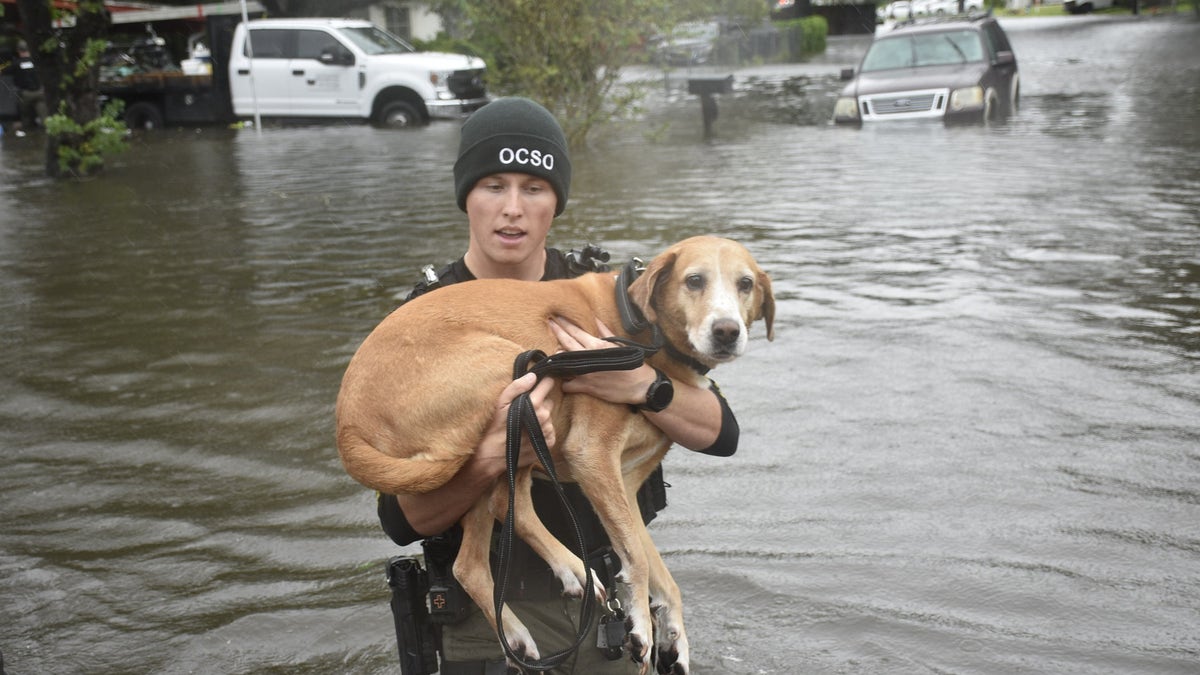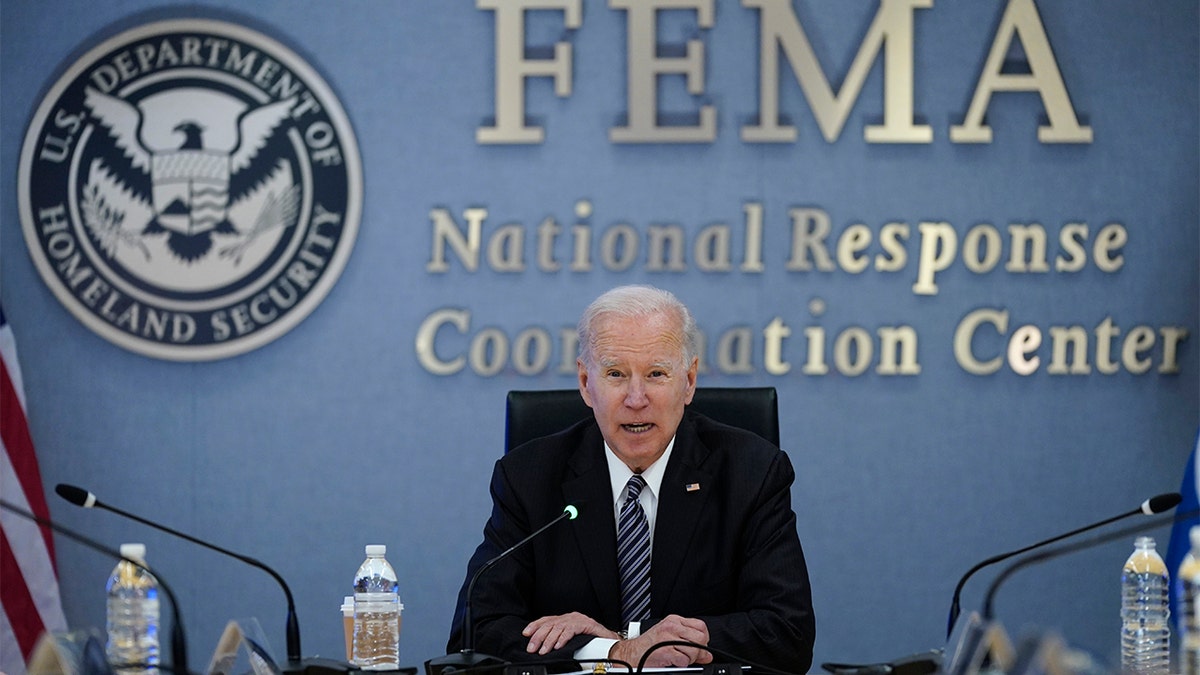Former FEMA director Michael Brown: Media must 'lower the temperature' on Hurricane Ian coverage
Former FEMA director Michael Brown reflects on what he learned during his time leading the response to Hurricane Katrina on 'Your World.'
Former FEMA director Michael Brown urged the media Thursday to "lower the temperature" in its coverage of Hurricane Ian as part of a list of priorities he outlined surrounding relief and rescue efforts to avoid repeating the botched federal response he oversaw during Hurricane Katrina.
Brown, who became the face of the federal government's bungling of the 2005 Katrina disaster under President George W. Bush, praised the White House's response to Ian on "Your World" Thursday, telling host Neil Cavuto that it appears the government has "learned a lot" since his time as FEMA director
"I think they learned the lessons from Katrina," Brown said, crediting the lack of political infighting for allowing local and federal officials to "focus on what really needs to be done."
FOX WEATHER: WHERE IS IAN HEADED NEXT? DANGEROUS STORM'S IMPACTS WILL BE WIDESPREAD
But, he added, "One of the things that does need to be done that I haven’t seen a lot of… is, I think the media has really been hyping this quite a bit. And what they need to do is speak directly and calmly and straightforward to the people in the path of these storms about what to expect, what you should do, where you should go."

Orange County Sheriff's Office rescues a pet from Hurricane Ian's destruction. (Orange County Sheriff's Office)
Brown urged the media to dial down the "hyperbole" in their coverage of Ian's aftermath to communicate responsibly with those impacted.
"If we lowered the temperature a little bit and a little bit of the hyperbole and told people the facts about what could happen and what you should do, I think that people are getting wiser about listening to things and I think government is getting wiser about you know what in this is going to cost us in the long run if we don’t cooperate now," he said.
While it appears local leaders are putting their political differences aside and working with the White House for disaster support, Brown said it's a matter of time before a mistake is made and the "claws come out."
"Even though right now they’re hugging each other and talking about the great leadership, which is great because that’s what I actually am observing, this is by its very nature a disaster," he said. "So in a disaster by its very nature, things go wrong. Something goes wrong all the time. If it happens to occur in front of a national camera or even a local camera, that gets amplified all over the country and suddenly the claws come out and everybody is fighting against each other,"

President Joe Biden participates in a briefing on the upcoming Atlantic hurricane season, at FEMA headquarters, Monday, May 24, 2021, in Washington. (AP Photo/Evan Vucci) (AP Photo/Evan Vucci)
"It’s a responsibility on government officials, it's a responsibility of citizens and a responsibility of the media to understand what we’re dealing with is a natural disaster. They happen. They’re always going to happen. They'll happen to us in the future," Brown continued. "So let’s figure out a way and I think we’re seeing it now, let’s just come together and try to fix this and realize this is what it is."
DESANTIS: FLORIDA'S HURRICANE IAN RECOVERY WILL BE 24/7 OPERATION
Brown added that while the country has come a long way in mitigating the impact of deadly disasters since Katrina, Americans have yet to fully come to grips with the reality surrounding hurricanes of this magnitude.
"I want Americans to get more realistic about natural disasters," he said. "They’re going to occur regardless of what you want to think about climate change or anything else. They’re always going to occur. What we need to do as human beings is learn how to mitigate against those natural disasters."
Brown also addressed the challenges that emergency managers are facing when asked by Cavuto about President Bush's comment during a photo op at the time when he famously said, "Brownie, you’re doing a heck of a job."

Times-Picayune staff photographer Alex Brandon swims away from the newspaper's offices in the flooded city of New Orleans in the aftermath of Hurricane Katrina. (AP)
Brown said prior to that moment, he was trying to communicate to the then-president the intensity of the situation but was interrupted.
"I was trying to explain to the president what was going on. We got interrupted and they said, 'Look, we're running late, we gotta go out there now,'' Brown recalled.
His mistake at that point was not pushing back and insisting that the president hear what he had to say, he told Cavuto.
CLICK HERE TO GET THE FOX NEWS APP
"So, I would say to emergency managers, city councilmen, firefighters, responders, if you need to convey a message to your leadership, you have to get in front of them, you’ve got to step in front of them, block them, tackle them, whatever it is and say you have to hear this," he continued. "Because if you don’t hear what I’m about to say, it’s going to come down on you or me or both of us. This is just part of learning to communicate in the midst of a crisis. You’ve got to step back, make people take time out, calm down and listen to what’s going on.
"I think that’s the role of government, the role of citizens and the media," he said.









































